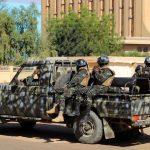
In a recent press release, the Africa Leadership Group (ALG), a citizen-centric organization focused on effective governance and leadership, has expressed its concerns over President Bola Tinubu’s swift decision to remove the petroleum subsidy. The group argues that the subsequent effects of this decision on the Nigerian citizens are significant and worrisome.
The press release, signed by Lara Gureje-Oderinde, the ALG Director of Publicity and Media Relations, highlights the group’s position on the matter. According to ALG, President Tinubu’s administration’s plan to disburse 500 billion naira to 12 million households over six months fails to address the fundamental issues and impacts resulting from the subsidy removal adequately.
“The decision to remove the petroleum subsidy regime, as declared by Mr. Bola Tinubu in his inaugural address, has had immediate consequences on the prices of goods, essential services, and food items, causing significant worries among millions of Nigerians,” the statement said. “The sharp increase in transport fares has added to the burden on citizens.”
The ALG conducted a survey of citizens’ opinions and revealed that some analysts believe the current approach does not effectively address the core issues and impacts of the subsidy removal. As an alternative, the ALG proposes three key areas where the 500 billion naira could be better channeled to serve the needs of the people.
The proposed allocation includes approximately 48.7 percent of the funds invested in modular refineries to create jobs, 48.1 percent directed towards manufacturing or agriculture, with a focus on small and medium enterprises (SMEs) and smallholder farmers. Additionally, 41.7 percent of the funds should be used to subsidize commercial transportation or purchase and distribute new buses to states to alleviate the impact on human and goods logistics.
The statement also listed other actionable pathways suggested by citizens, such as investing in health and education, subsidizing electricity tariffs, transparently distributing funds to the poor, addressing areas affected by terrorism, and focusing on food security initiatives.
Furthermore, the ALG emphasized that a phased implementation of the subsidy removal would have been more prudent, allowing citizens to plan and adjust their budgets accordingly. The abrupt removal has already had severe effects on many families, leading some to abandon their vehicles due to the high fuel prices.
Based on the citizen survey, the ALG recommends that a portion of the 500 billion naira should be invested in climate-smart agriculture pilot food production initiatives in different geopolitical zones. This move aims to enhance food security and reduce the country’s dependency on imports.
In conclusion, the ALG calls on the government to prioritize the well-being of its citizens, especially in terms of food security and transportation. The group advocates for a fair and equitable transition towards a sustainable and economically secure future. This can be achieved by carefully planning and implementing measures to mitigate the immediate effects of the subsidy removal while simultaneously investing in long-term solutions.
The ALG urges the government to understand who benefits from fuel price increases and the welfare impact of such price hikes. It emphasizes that gaining public support for any relief program funding is essential. Considering the adverse impact on poor households, the ALG urges quick implementation of mitigating measures to protect these households by expanding existing safety net programs and increasing spending in high-priority areas that benefit the poor, such as health, education, and infrastructure.





Comments are closed.